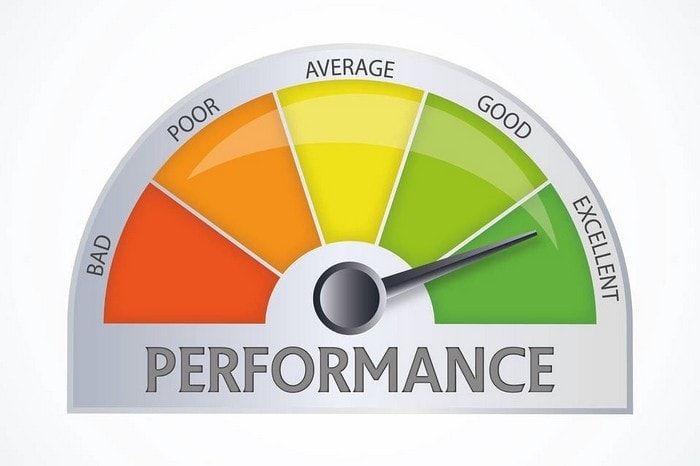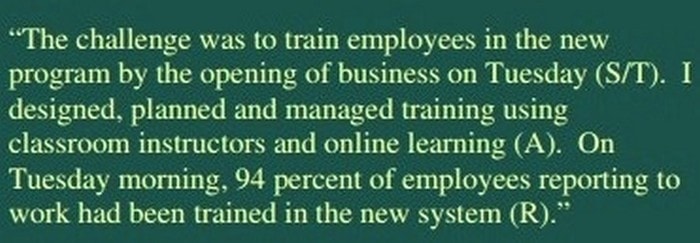When an organization asks its employees to self evaluate their performances, Self Assessment comes in play. Self-appraisals are mostly part of the annual performance review system.
The process of self-evaluation revolves around the documentation of-
- Employee Accomplishments
- Employee Learning
- Employee Challenges, etc
In this post, we will be sharing some powerful Self Assessment Techniques that industry experts suggest.
Table of Contents
Opportunities that Self Assessment Offers
When you are asked to do self-evaluation, you will get an opportunity to showcase your accomplishments. You need to write your appraisal based upon the things that you did adeptly. You should also talk about the learning that you get from jobs that you did not perform so well.
When you write your appraisal, you will have the opportunity to provide the positive and productive aspects of your past 12 months’ performance. This can be highly useful in developing a positive sentiment for you in the Annual Performance Review Process.
All in all, you have to use your Self Assessment as the complete picture of your annual performance.
Importance of Self Assessment
Are you thinking here that Performance Appraisal is the task of HR Managers?
Do you hope that your managers should be having all the details of your accomplishments?
Then you need to understand that employees are accountable for their accomplishments and failures.
Managers can miss some of your successes, but when you do self-appraisal, you remember all your positives. In case you could not perform any task well, you must be knowing the right reason behind that. So, you can provide your side of story adeptly via your self-appraisal.
This will help you while negotiating with your managers and convincing them for a more favorable report card. You can remind your HRs about your successes, challenges, and developments.
Plus, you can also submit your humble submission when your manager’s perspective is different from your point of view.
Do you want to influence managers to see your performance from your perspective?
Self Assessment will do this for you.
It helps managers know your perspective about your strengths, weakness, enthusiasm, and motivations, which will be quite helpful in getting favorable outcomes from the appraisal meetings.
10 steps of Self Assessment
1) Basics of your Self Assessment ought to be Correct
It is critical to be objective while specifying your key achievements in your self-appraisal.
You should just not start enlisting your accomplishments like any other list, but rather your appraisal report should give a review of your bigger accomplishments.
It is ideal for sorting your achievements under every one of your objectives over the examination time frame, as this will help your managers have the more proper understandings of your characteristics, strengths, and area of developments.
2) Highlight your splendid Accomplishments
To showcase your successes, it is important for you to take a gander at the past inputs that you have got from supervisors or managers, ventures you’ve finished successfully and initiatives you’ve propelled.
All these will help you have a great list of successes.
Maintaining a performance journal or diary can also be quite useful here in enlisting all the important details. It will ease down the process of creating Self Assessment.
3) Highlight the lessons that you’ve learned
Do you remember what was discussed in last year’s appraisal meeting?
What lessons have you learned since then?
Your self-appraisal should also highlight this. You should share the manners by which you’ve had the option to improve your aptitudes and skill sets.
You should depict the new abilities you’ve aced and how they’ve helped you in your performance. It is also important here to portray how these new skill sets help you achieve organizational goals.
4) Highlight the difficulties that hampered your Performance
Self Assessment should not only brag about your achievements. You should use it to so some modesty by giving details of the reasons why you could not complete some of the tasks to meet your own or seniors’ expectations.
Be genuine about your difficulties in the year.
You should also depict how you conquered those difficulties or the means through which you are planning to tackle them in the next year.
5) Be straightforward and honest in your Self Assessment
As said earlier, you should not just adorn your achievements in self-appraisal.
Rather you should contemplate how you pick your evaluations for yourself. HR managers will probably like to follow your ratings, so you should give proper instances of your triumphs, plus you should also give instances of your not very good executions.
When you choose to be honest in your appraisals, it will help in maintaining a strategic distance from bragging about your accomplishments. Plus, it will also guarantee that your achievements aren’t discredited from being considered by your managers.
That is why it is important that you be mindful in a way that you are not too aggressive or defensive in self-appraisals.
6) Always take your time to write an impressive Self Assessment
It is important that you take the time expected to write it in the right manner. You should plan time for it in your schedule.
All things considered, this is going to be about you, and you have to be satisfied with it.
It is important to utilize all the details asked in the form for giving the perfect story about yourself, so while going through your appraisal, HRs do not say that if you hurried your self-evaluation.
7) No need to finish Self Assessment in Right Away
It is important that you consider self-appraisal as an important creative piece that will ultimately depict your personality.
As said earlier, when you give the needed time to your appraisal, you’ll be a lot more joyful with the final product. This will allow you to reflect your true personality that cautiously aids your self-evaluation.
It is also essential to use examples to support your attestations. Also, you should ensure that you spell; grammar and syntax check your appraisal.
Such sincerity will indicate how genuinely you take the procedure of self-appraisal and how significant it is for you.
8) Check if every Essential Part of Self Assessment are Included
When it comes to an effective Self Assessment, it comprises numerous parts.
A portion of these incorporates a nitty-gritty portrayal of KRAs that are Key Responsibility Areas along with the accomplishments in that, the productivity of the initiatives you have taken, ventures you had embraced, and your particular accomplishments.
Some other things that can be a part of good self-appraisal are-
- Some huge successes that you legitimately achieved
- Your best lessons during the evaluation time frame
- Training that you need to enhance your skills throughout the following year
9) A Final Review of your Self Assessment is Very Important
After composing your self-appraisal, it is important that you read the last draft.
It is also important that you continuously review your appraisal to perceive what key qualities and achievements of yours are developing. Plus you should also check whether it is clear about how your achievements have decidedly affected your company.
So, a proper review is very important to make self-appraisal flawless.
In addition to aforestated methods, there is a STAR Method of Self Assessment that can be quite useful for you in describing your strengths, successes, and skills. Let us have a deeper look at this method-
10) STAR Method of Self Assessment
Different letters in the STAR method stands for-
S- Situation
T- Task
A- Action
R- Results
So, all in all, it says about a Situation or Task for whose accomplishments, you took action and finally the results you achieved in the process. Let us have a look at a below-given example to understand the process-
Wrapping it Up!
Now, on the concluding note, we hope you would have understood the steps of writing an effective Self Assessment.
Bringing a copy of a self-appraisal in a Performance Review Meeting will increase your chances of getting favorable outcomes, as your HRs or managers may consider your appraisal as a reference.
Before ending the post, let us again have a brief look upon the key steps of creating an effective Self Assessment-
- Objectively stating your achievements
- Be honest in detailing your activities and do not embellish your successes
- While addressing negatives, bring up your development areas
- Highlight what you have learned
- Always state a problem or weakness with a solution
- Opt for more appropriate word choices
So, what is your take about Self Assessment? Did we miss any important step here? Share with us in the comments below.
Liked this post? Check out the complete series on Human resources


